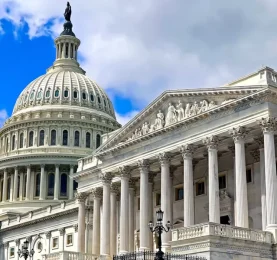Industrial policies and subsidies are making a strong comeback, particularly in major economies like the US, China, India, Germany, and Brazil. Governments are increasingly involved in setting industrial priorities and supporting strategic industries through subsidies to foster innovation and technology diffusion. In 2023, 2,642 industrial policy measures were implemented, driven by efforts to secure strategic competitiveness, address climate change, and enhance national security. However, industrial policy is not a flawless solution and can sometimes be counterproductive, leading to retaliatory actions. The main constraint on financing industrial policy is fiscal capacity, with subsidies averaging 0.3% of GDP in EU27 economies in 2023. As countries face budget deficits, public debt, and fiscal pressures, it becomes crucial to implement well-considered fiscal policies to promote innovation while avoiding economic distortions.
For investors and businesses, the resurgence of industrial policy offers short-term gains for some but also poses long-term challenges. In the short run, sectors related to the transition and technology, especially low-carbon technologies, metals (steel, aluminum, and critical materials), advanced technologies, semiconductors, and defense-related sectors, will benefit the most from industrial policies. Companies are expected to see a significant boost in profitability: The average renewable/green tech manufacturer could see its gross profit margin double by 2025 compared to a baseline without tax credits. Industrial policy also allows investors to capitalize on the commodities market, although this may come at the expense of corporations and consumers. As supply-demand gaps for some metals become more apparent and inflationary risks rise, prices are expected to increase. Large corporations financing projects eligible for industrial policy subsidies through green bonds could benefit from significantly lower financing costs due to reduced risk from industrial policies. However, investment can eventually lead to over-investment and inefficiency. Industrial policy might also cause a crowding-out effect, with large corporations receiving the majority of benefits. For example, only seven very large global firms will receive 75% of the CHIPS program grants already allocated (USD 29.3 billion). This issue requires smarter, more efficient industrial policies to be addressed.
Learn more here: https://www.allianz.com/en/economic_research/insights/publications/specials_fmo/2024_06_19-industrial-policy.html











